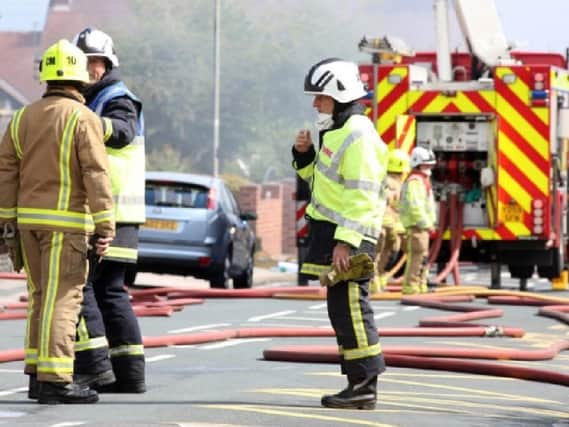Fire chief's warning over false alarm calls in Wigan


A fire chief has warned that false alarms at a town centre building in Wigan are leaving the service’s resources depleted.
Carl Gleaves, watch manager at Wigan fire station, said the false alarms have happened several times a night for the last two weeks and are being made by a tenant in a communal building.
Advertisement
Hide AdAdvertisement
Hide AdMr Gleaves said it meant that the station’s two pumps were spending their time there rather than dealing with genuine emergency calls.
A false alarm is a deceptive or erroneous report of an emergency which can cause unnecessary panic and bring resources to a place where they are not needed.
Mr Gleaves said: “It’s really important that the fire service are available.
“We’re getting lots of false alarms at the same place which is part of an ongoing investigation. Police are looking into it.
Advertisement
Hide AdAdvertisement
Hide Ad“They’re coming from a communal building with a significant amount of people in, not a house or commercial property, and are being made by a tenant.
“The false alarms continually happen several times a night every night.
“Wigan is a big town and we our best to get to jobs in seven minutes so this isn’t going to help our response times.
“If there’s a house fire, it could mean that it could take double the time for us to attend as we would have to send out both our two pumps.
“The next nearest appliances are 15 minutes away.
Advertisement
Hide AdAdvertisement
Hide Ad“So this is taking our resources away from a genuine emergency call.
He went on to warn people of the dangers of making false alarms, saying it could put “lives at risk.”
He said: “It’s just reckless and selfish behaviour.
“This could put people’s lives at risk.
“So I would warn people not to do this.”
The warning from Mr Gleaves comes after Home Office figures showed the Greater Manchester Fire and Rescue Service responded to 14,123 call-outs in 2018-19 which proved to be false alarms.
This was the highest number for five years – and 195 more than in 2017-18.